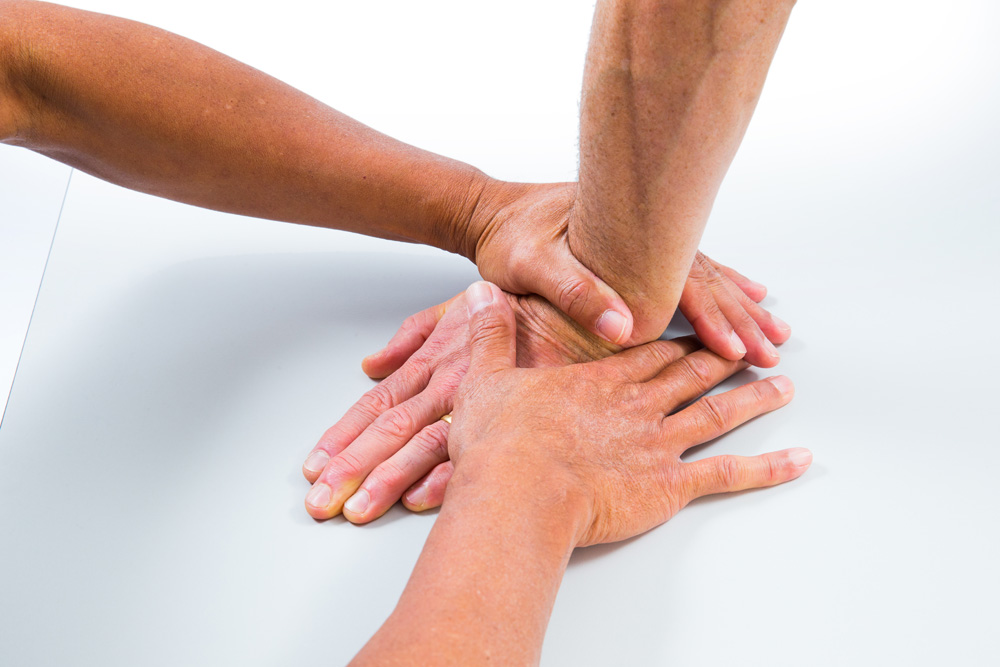Upper & lower quadrant courses
A contemporary approach in the management of peripheral disorders.

Overview
This is a face-to-face course held in various locations around Australia and the world.
Here is a fantastic opportunity to stimulate your clinical practice and enhance your career. This comprehensive 8-day program provides clinicians with intensive tuition in an integrated and clinically reasoned evidence informed approach to manual therapy of the peripheral joints. This program has been held in many countries around the world for 25 years.
Manual Concepts’ highly qualified musculoskeletal physiotherapists, including Dr. Vaidas Stalioraitis and Grant MacKay, are the educators on this course that was originally developed by Dr. Kim Robinson and Dr. Toby Hall. The Manual Concepts team have taught manual therapy at an advanced postgraduate level for many years. Vaidas, Kim & Toby are Specialist Musculoskeletal Physiotherapists and have been award Fellow of the Australian College of Physiotherapists. Read more about us.
The primary aim of the program is to integrate joint, muscle/tendon and neural tissue systems to provide a comprehensive approach to the management of peripheral neuromusculoskeletal pain disorder. The syllabus is grounded in a bio-psychosocial approach to managing musculoskeletal disorders, which incorporates a range of manual therapy and exercise concepts. Of special interest will be clinical practice, emphasizing clinical examination, evaluation, interpretation, differential diagnosis and therefore classification and treatment. Management is individualised to ensure patients are amenable to physical treatments including manual therapy and exercise. The aim is to address movement and motor control impairments, as well as neural tissue pain disorders. Screening for negative prognostic factors will also be taught as it is important to screen out patients unsuitable for manual therapy and exercise.
Treatment for movement impairment (articular dysfunction) is eclectic and includes a broad range of mobilisation, and mobilisation with movement techniques.
Evaluation and management of motor control impairment is incorporated into the programme.
Neural pain disorders are also sub-classified according to clinical examination findings into sensory hypersensitivity, compression neuropathy, and peripheral nerve sensitization. This sub-classification system is management driven and is backed up by supporting evidence for its validity and efficacy in management.
This course will be suitable to individuals at all levels of experience including those who are seeking new knowledge and those seeking to expand their knowledge. Whilst the course will be presented at a high level this should not be seen as a barrier to participation for those with little experience in this special area. As a result of attending the course it is anticipated that participants will gain personal satisfaction in a variety of ways that will enhance their individual requirements. There are therefore no pre-requisites for participation.
This syllabus will cover in detail upper and lower limb articular and neural disorders, as well as muscle function and tendinopathy. Participants are provided with pre-course reading material and an extensive course manual to cover all aspects of the programme.


